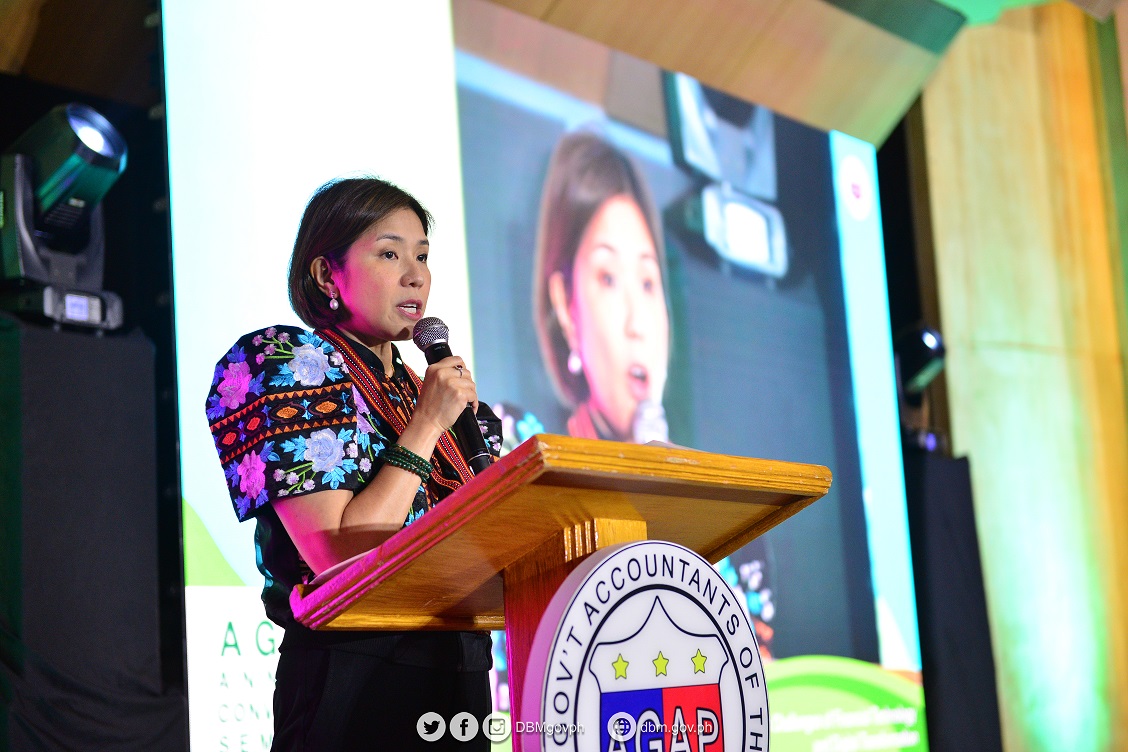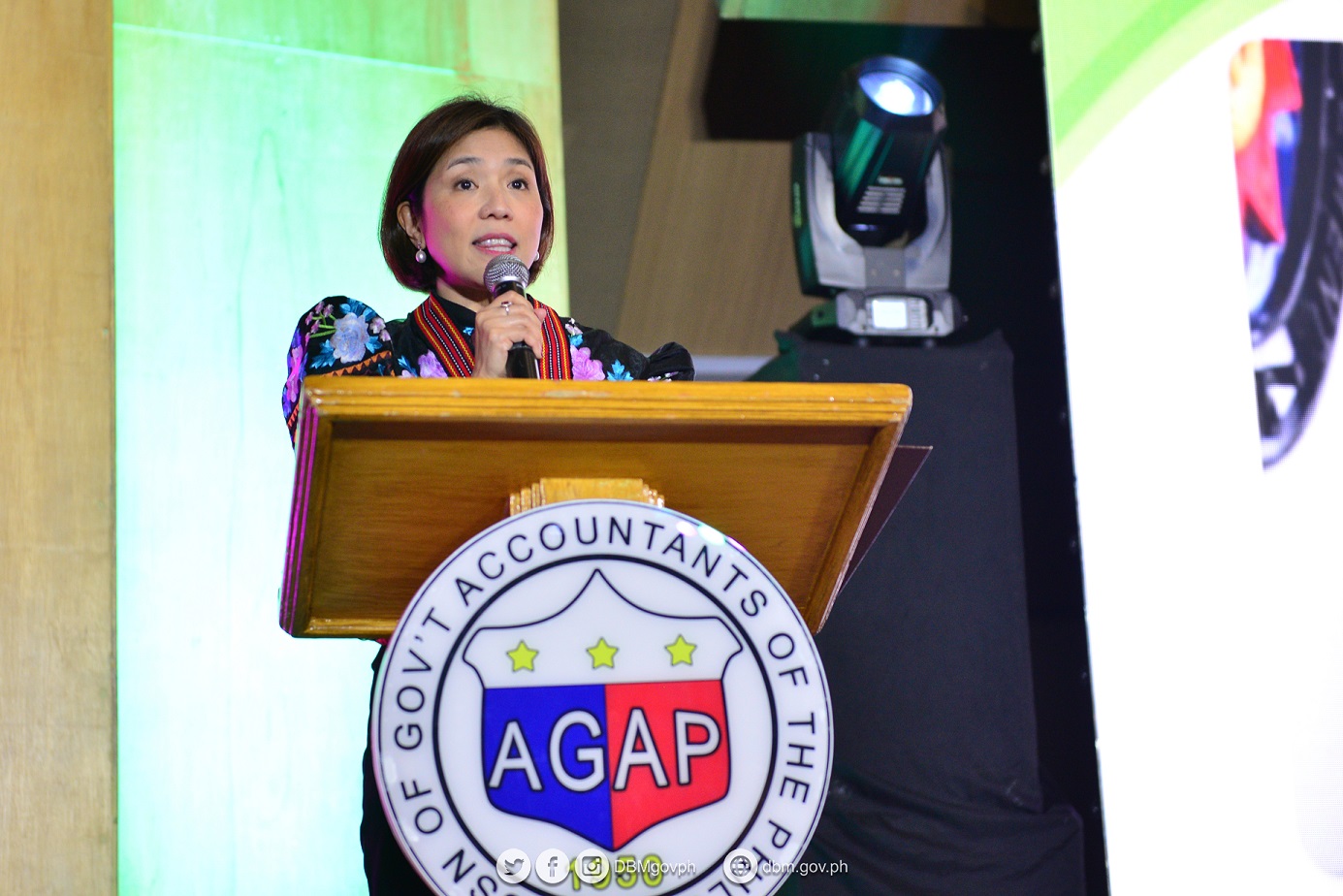 |
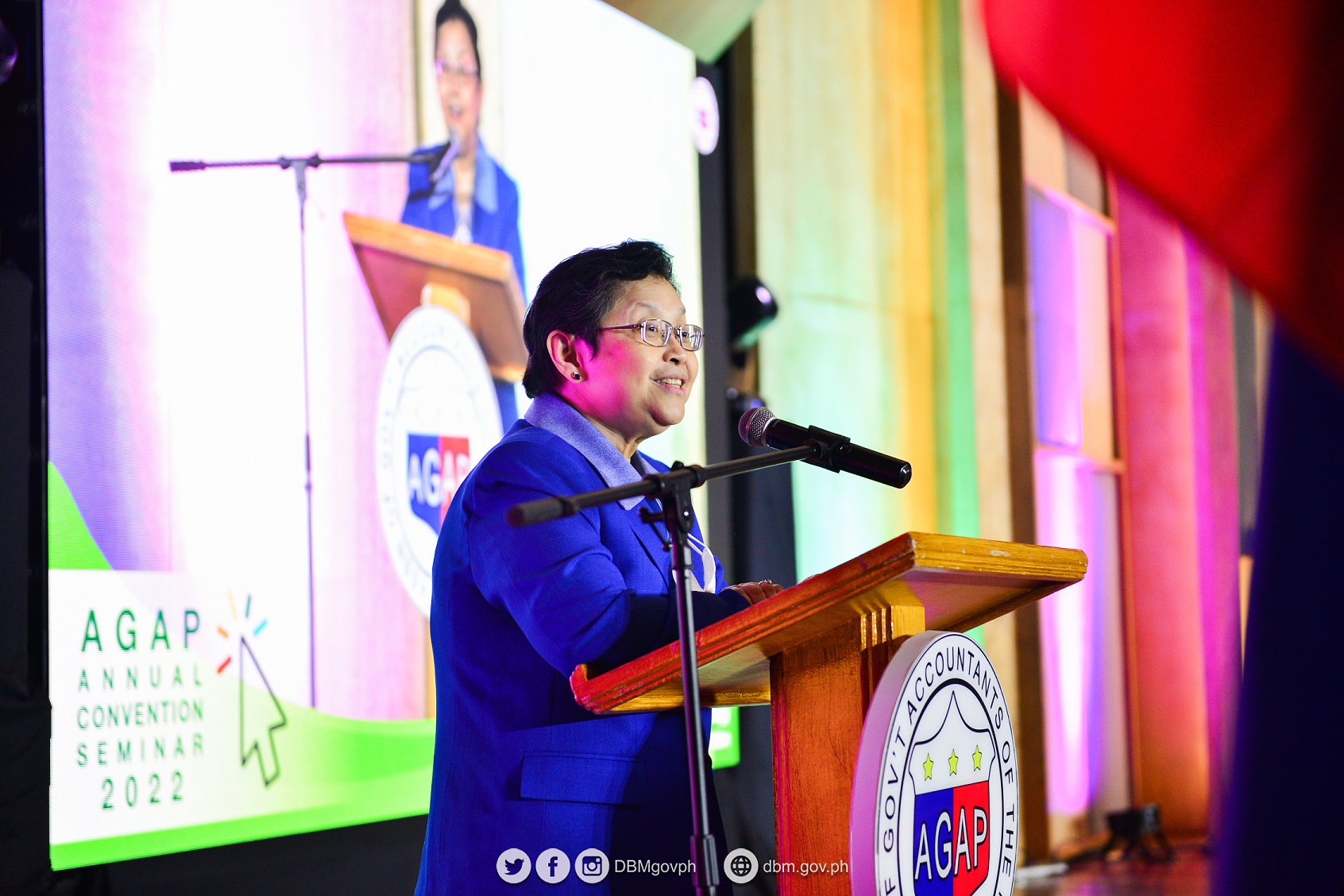 |
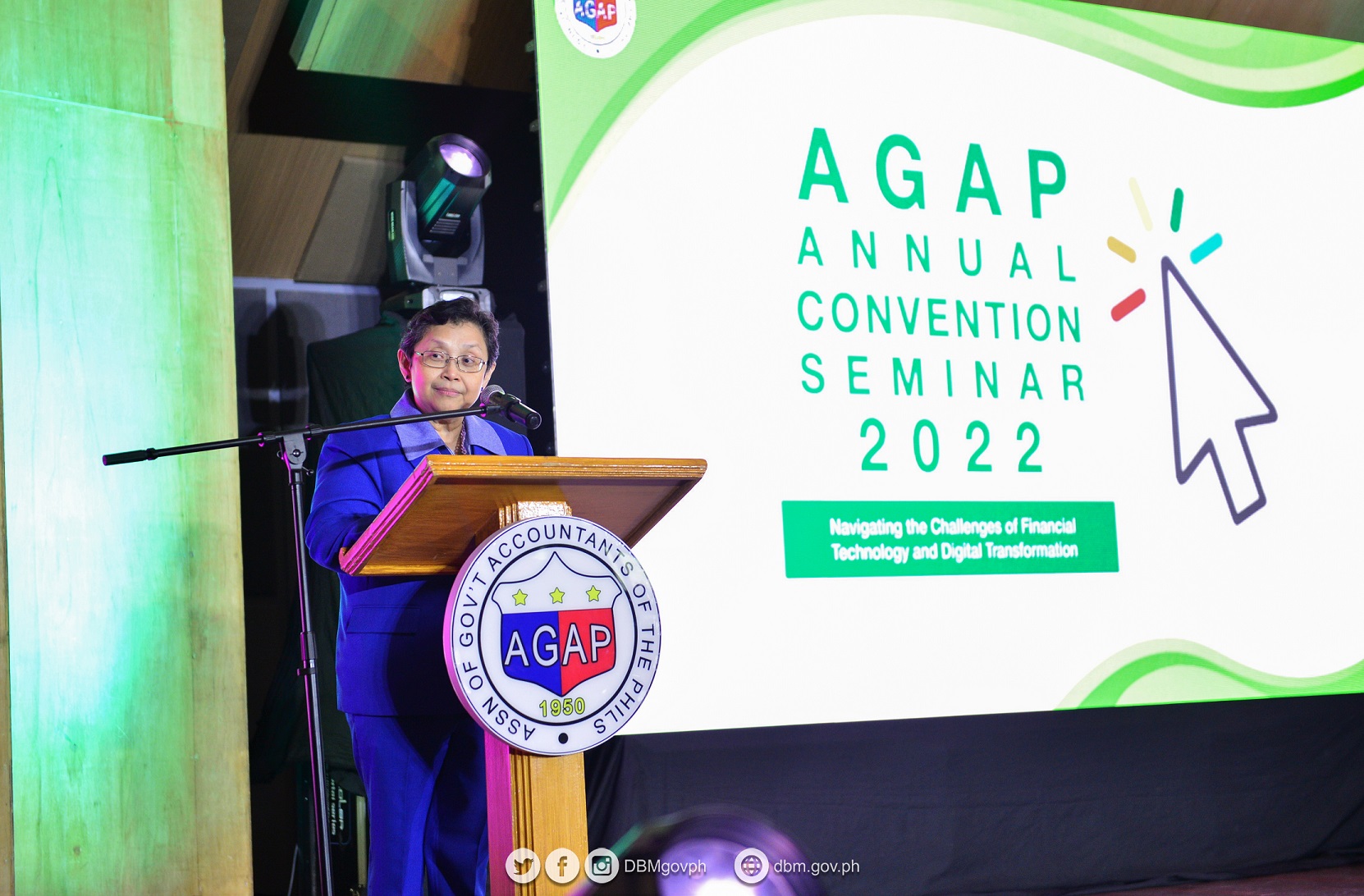 |
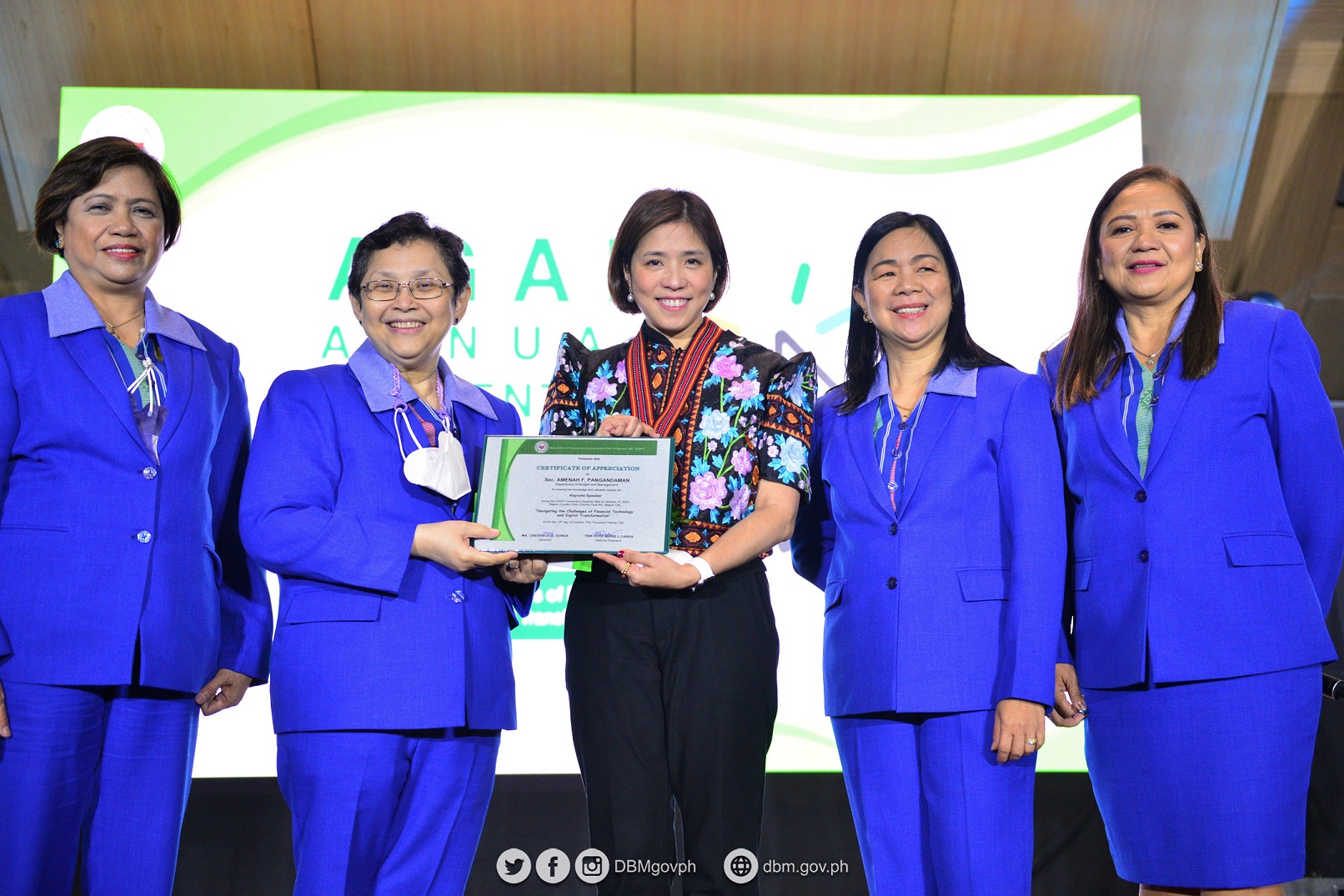 |
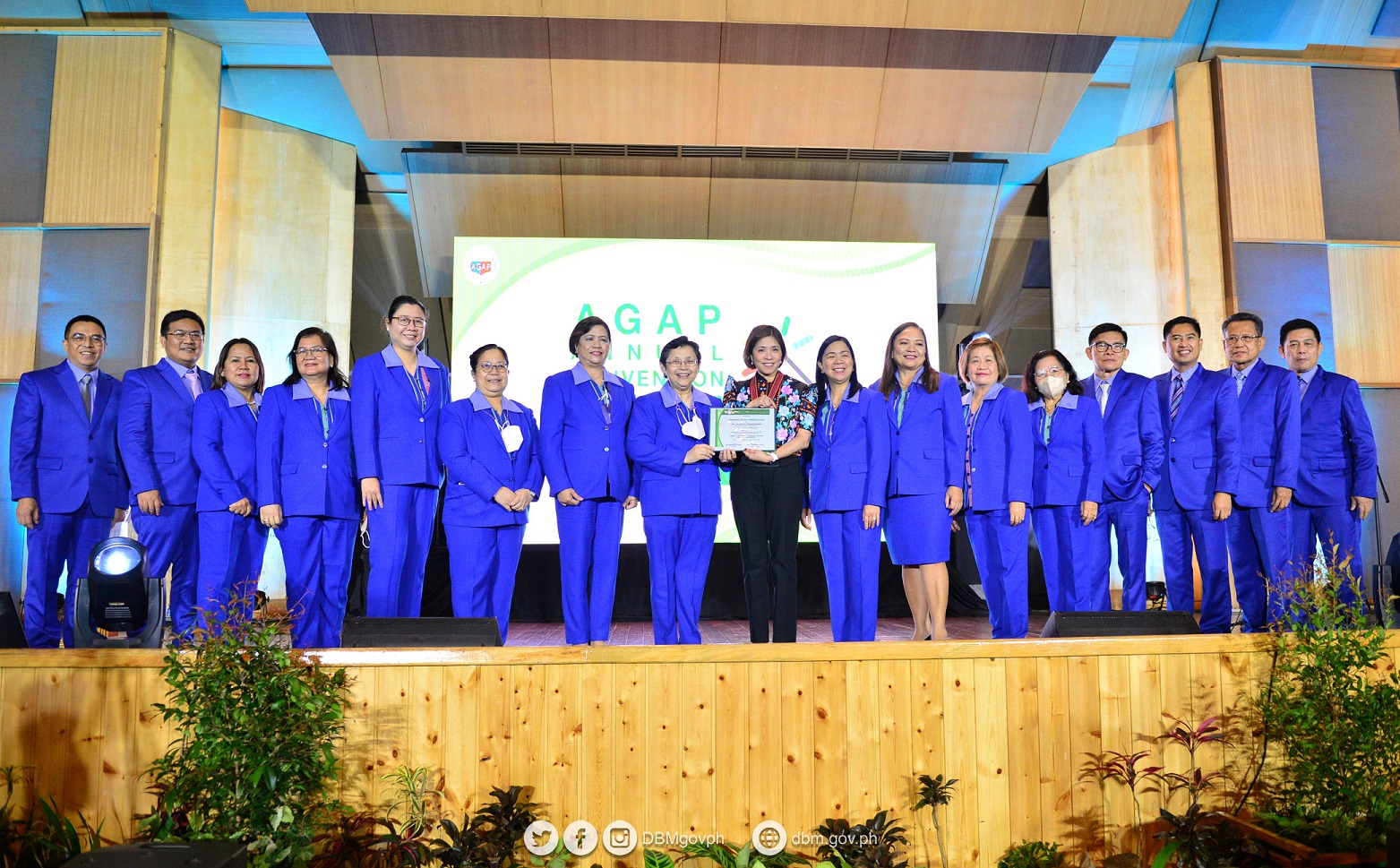 |
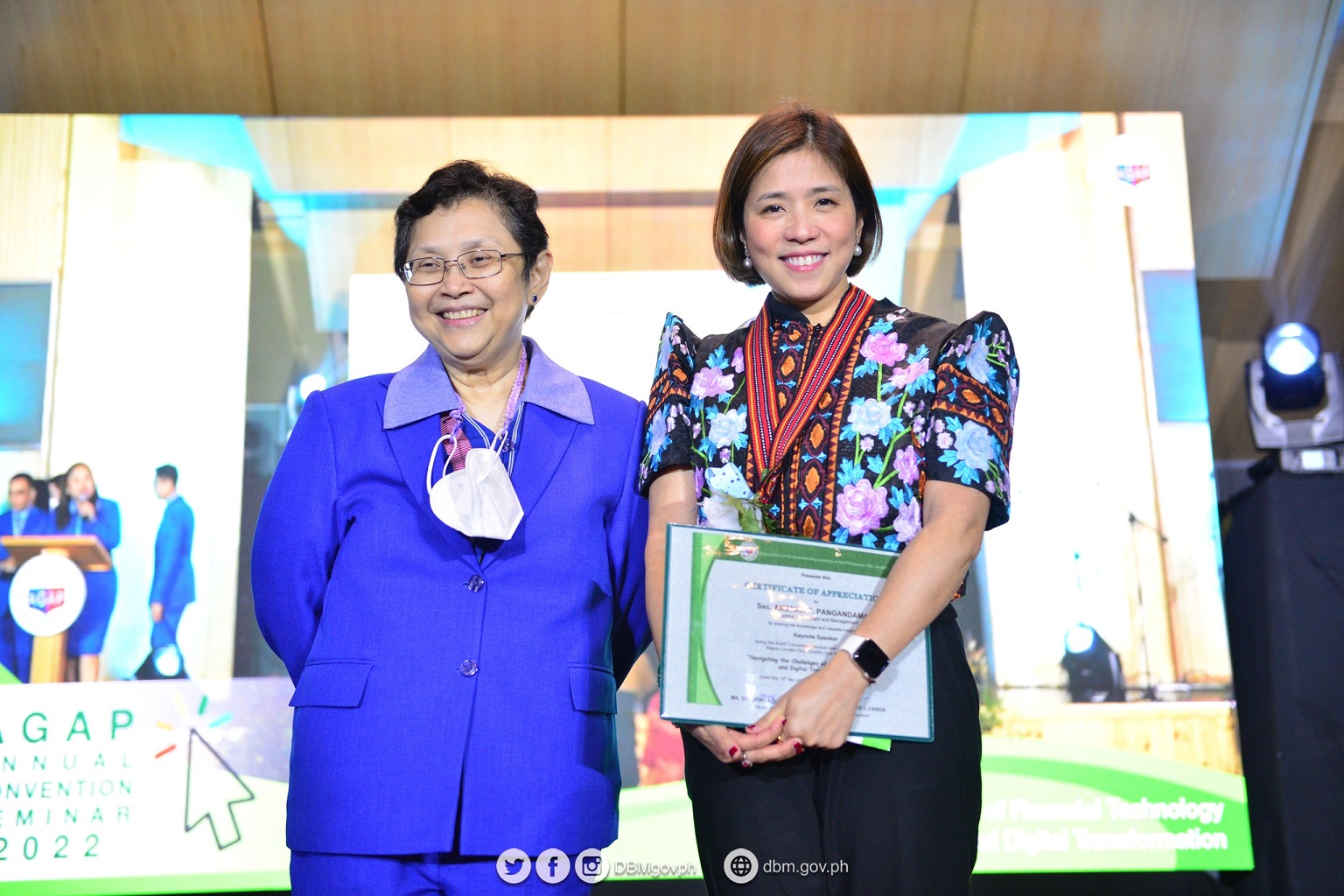 |
To DBM Undersecretary and Association of Government Accountants of the Philippines or AGAP Inc. National President Tina Rose Marie Canda, PAO Chief Persida Acosta, our esteemed guests and resource speakers, officers and members of AGAP, and of course, to our participants—our public servants performing accounting, budgeting, auditing, cashiering, and other allied financial functions—good day and I am delighted to be with you today for the Annual National Convention Seminar of AGAP Inc.
I just arrived last Monday night from Washington D.C. where I joined the country’s economic managers in presenting the Philippines’ economic plans at the International Monetary Fund and World Bank Annual Meetings but I made sure to travel immediately here today. I would not miss the honor of being with all of you.
With its more than 50 years of service as an institution, AGAP has thrived through the many changes in our society. I truly admire how it grew from its six founding members in 1950, who dreamed of promoting the interests of government accountants, to an organization of more than 10,000 members from national government agencies, local government units, and government-owned or controlled corporations.
Last week, I joined the country’s economic managers in presenting the Philippines’ economic plans at the International Monetary Fund and World Bank Annual Meetings, and engaged with US-based business and financial communities at the Philippine Embassy in Washington, D.C. for a roundtable discussion on the Philippines’ strong economic recovery and robust outlook.
As I presented the country’s expenditure program, I shared how the Administration is working hard towards economic transformation that would be felt by every individual, family, and business in the Philippines as guided by our 8-point socioeconomic agenda: food security, improved transportation, affordable and clean energy, health care, social services, safe face-to-face education, bureaucratic efficiency, and sound fiscal management.
While the economic managers and their respective institutions are hard at work towards this end, this would not be possible without your help—our dear accountants and government financial managers, and the whole of AGAP Inc. who help carry out our pursuit of bureaucratic efficiency and sound fiscal management.
As we all know, the Department of Budget and Management (DBM) operates with the help of interrelated public financial management functions. Accounting is a critical dimension of this, along with budgeting, auditing, cash management, procurement, revenue generation, and public reporting on public sector financial operations.
As such, your insights, analyses, perspectives, and advice empower us, government leaders and managers, to make important decisions on the use of public resources to ultimately serve the public’s interest.
So all of you here today play this crucial role in the realization of our mission to lead public expenditure management and ensure the equitable, prudent, transparent and accountable allocation and use of public funds.
And we are grateful to organizations such as AGAP Inc. for uniting and capacitating our accountants and government financial managers, and for regularly convening and providing a venue to discuss updates and key strategies to keep up with our fast-changing times.
Indeed, AGAP Inc. has come a long way since its inception in 1950. And we are delighted to learn that your theme for this year’s convention resonates with one of our priority budget reforms that is crucial in our pursuit of bureaucratic efficiency and sound fiscal management—digital transformation.
In support of the Administration’s thrust for a lean, efficient, and responsive government workforce, the FY 2023 Proposed National Budget will facilitate the transformation and digitalization of the government to streamline the bureaucracy.
Digital Transformation of the Bureaucracy
We will pursue investments in information and communications technology to transform and digitalize government processes, records, and databases through e-governance.
Php 12.47 billion of the national budget was proposed to be provided for our ICT and digitalization programs and projects. This includes the improvement of revenue collection through digitalization, with the DOF receiving an allocation of Php 3.56 billion.
Moreover, the DICT was allocated Php 4.72 billion for its ICT Systems and Infostructure Development, Management, and Advisory Program, which includes funding for the implementation of the National Government Data Center Infrastructure and the National Government Portal to connect government departments and improve its accessibility.
The National Broadband Plan, aimed to improve overall internet speed and affordability in the country, is allocated Php 1.50 billion.
Digitalization of the Public Financial Management System
On our end at DBM, we are working towards the enactment of the Budget Modernization Bill, an overarching priority legislation of the Legislative-Executive Development Advisory Council (LEDAC) that will catalyze reforms in the budget process. It aims to improve the timeliness and efficiency of the implementation of government programs and projects.
The Bill covers the development and implementation of the Budget and Treasury Management System or BTMS. As a centralized database, it will:
- facilitate the generation of vital information of government financial transactions;
- enable real-time mapping of transactions, from purchase to payment; and
- allow expedient and accurate financial management, improved data governance, and enhanced oversight control.
The key objective of the BTMS is to achieve the future state of Public Financial Management where all spending agencies would capture government transactions at source using the BTMS as the sole accounting and fiscal reporting system.
We are likewise pushing for the gradual implementation of the Cash Budgeting System or CBS under Executive Order (EO) No. 91, s. 2019 to ensure timely and efficient implementation of government programs. It is expected that the CBS will be fully implemented by 2025.
Digitalization is our way forward. I cannot overemphasize how the digitalization of our public financial management systems will strengthen the integrity of our systems, diminish human discretion, expedite inter-agency coordination, and ensure the efficient delivery of public services. And speaking with all of you today, I am assured that we are not alone in this journey.
We hope that with your discussions in the coming days: the implications of digital transformation in public sector audit; the benefits and implications of financial inclusion; strengthening electronic process in procurement; the latest digitization efforts of oversight agencies such as the Bureau of the Treasury and the Bureau of Internal Revenue; and even the IT Infrastructure Roadmap of the DICT—you will strengthen your resolve to take part in implementing reforms while working towards good governance, transparency, and accountability.
In the same way, we at the DBM, support you, our government financial managers, as you continue to grow in your field and navigate the challenges brought about by forces both within and outside our control.
Before I end, let me take this opportunity to thank the leadership of Undersecretary Tina Rose Marie Canda—who has not only been a beacon at the DBM but I’m sure at AGAP Inc. also. I understand she is the first non-accountant head of AGAP Inc. I think this is not only a good reflection of Usec. Tina’s competence, but also of DBM’s value as an institution working within public financial management in the country.
It’s been a win-win to have Usec. Tina with the DBM and with AGAP Inc. It’s a bit early to say this, but the DBM and I will miss her dearly. Rest assured that we’ll work to keep her legacy, both in the DBM and AGAP Inc., live on.
That said, let’s continue to work together so that our digitalization efforts will not only translate to bureaucratic efficiency, but ultimately, to achieving our agenda for economic prosperity—one that is felt by every Filipino whom we are all sworn to serve with commitment and integrity.
Congratulations, AGAP Inc. and mabuhay tayong lahat!
